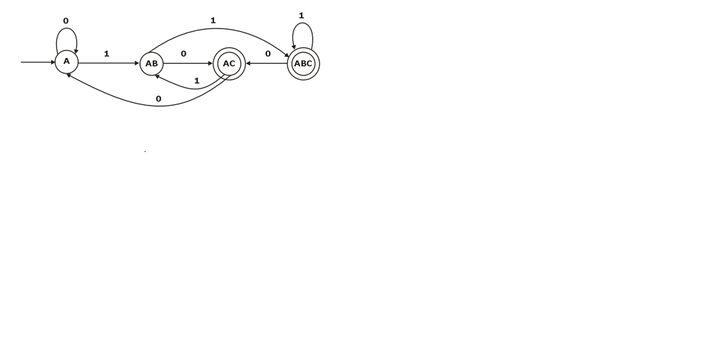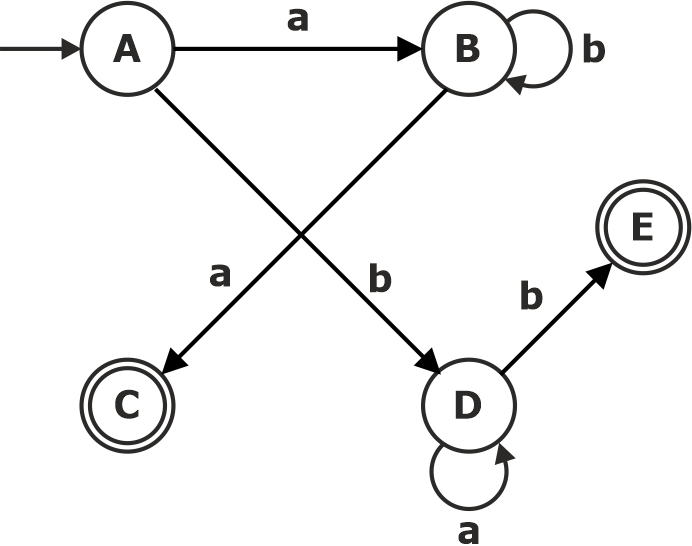Time Left - 45:00 mins
GATE CS 2022 : Theory of Computation Quiz-10
Attempt now to get your rank among 423 students!
Question 1
How many unreachable states are in following DFA?


Question 2
If L1 is DCFL and L2 is CFL , then which statement is true ?
Question 3
Consider the following incomplete DFA

Find the missing transitions from states C&E in the above DFA to accept a language where each string starts and ends with same symbol and has length at least 2.

Find the missing transitions from states C&E in the above DFA to accept a language where each string starts and ends with same symbol and has length at least 2.
Question 4
Consider the following problems , which among them can be implemented on a Turing machine :
S1 : Calculating GCD of two numbers
S2 : Copying string
S3 : Predicting the result of tomorrow's cricket match
S4 : Calculating surface area of a given cone dimensions
Question 5
Set of all context free languages are?
Question 6
L1 is reducible to L2 and L2 is reducible to L3. L3 is decidable. Which of the following can be valid using the above languages L1 and L2 ?
Question 7
which of the following grammar represent all the strings which can be generate by language L = {aibjck / i!=j and j!=k}
Question 8
Minimum number of states require to construct PDA acceptance by empty stack for the language L = {aibjckdl / i=k or j=l} is _____.
Question 9
Consider two languages L1 and L2 as :
L1 = {canbm |n,m ≥ 0 and n = m }
L2 = {danbm |n,m ≥ 0 and m = 2n }
What can you say about L1 U L2 ?
Question 10
Which of the following is True?
Question 11
Let L = {(aP)* | P is a prime number} and Σ={a}. The minimum number of states in NFA that accepts the language L are ________.
Question 12
The total number of substrings present in “GATE” is:
Question 13
Consider two languages, L1and L2:
L1= {an| n > = 0} and L2 = {bn | n > = 0}
Which of the following correctly represents L1⋅ L2, where ‘⋅’ is the concatenation operation?
Question 14
Which of the following functions is total recursive function?
Question 15
Let R be a recursive language. Consider the following operations on languages.
I. Union
II. Intersection
III. Complement
Let X be the number of operations under which R is closed. Then the value of X is ________.
I. Union
II. Intersection
III. Complement
Let X be the number of operations under which R is closed. Then the value of X is ________.
- 423 attempts
- 1 upvote
- 1 comment
Jul 18GATE & PSU CS

